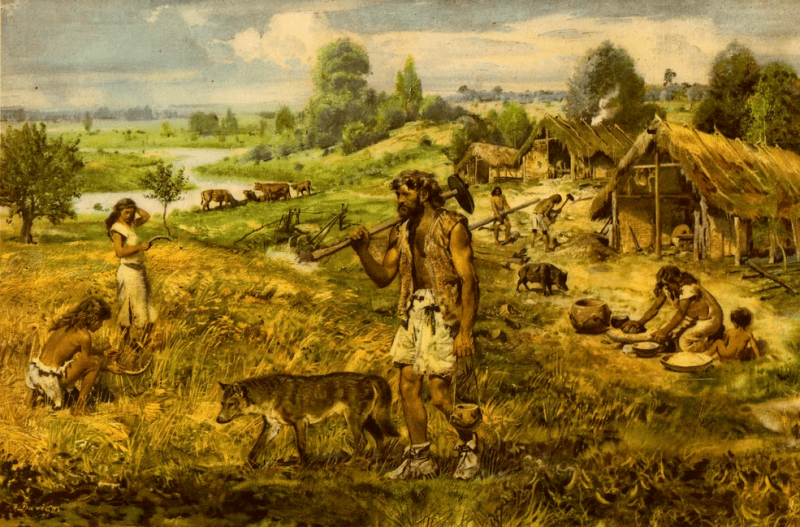After millions of years of our predecessors and us evolving as hunter-gatherers, humans abruptly stopped roaming, settled down and started to farm.
That process is loosely referred to as the Neolithic Revolution.
This begs questions. If the human brain hasn’t changed in 200,000 years, how come this cultural change suddenly arose spontaneously around the world (albeit with differences of a few thousand years here or there)? Why did it first emerge in the Near East and China? What was so special about the Near East and China? What triggered this pivot?
…
Possibly this: Our own biological and cultural evolution, along with exogenous geographical and climatic limitations, created a process that led modern humans to coordinate then cooperate, then collaborate – which could have led to a social bottleneck. By some point, even if you don’t want to be a farmer, you can’t turn back anymore, [researcher Ayelet] Shavit sums up.
…
According to this thinking, there didn’t need to be a specific notable trigger to explain the Neolithic Revolution. Not necessarily climate change and not a storm god. “We suggest that if we examine the processes of interaction, we don’t need a dramatic trigger or event,” she adds.































